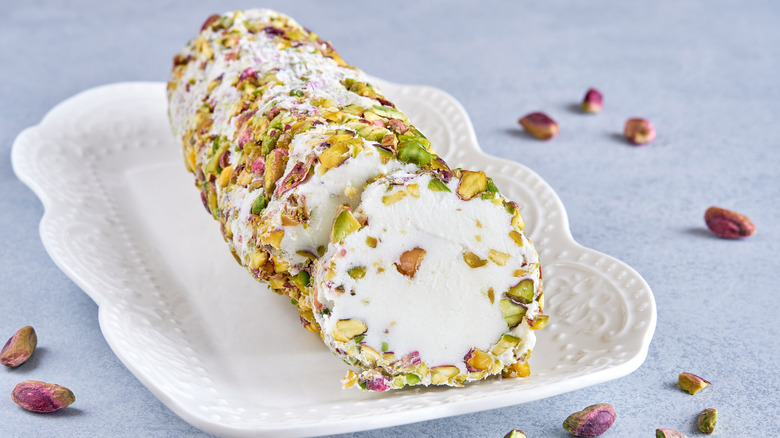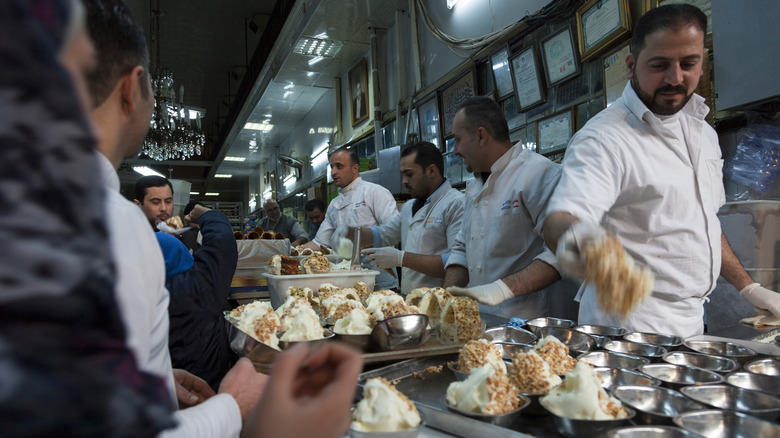Booza Is The Stretchy Mediterranean Ice Cream You Should Know
From creamy fior de latte to slushy-like sorbet, ice cream comes not only in many flavors but textures too. Typically, varying ratios of air, fat, and ice influence the consistency. However, in the Middle East, ice creams are also made with salep and mastic — two plant thickeners that lend the dessert a chewy texture.
Called booza, the sweet has a unique quality: being able to stretch while remaining creamy. Instead of churning, the air is integrated by stretching and pounding the mixture out of the freezer. The resultant ice cream has a higher melting point, and its rich mouthfeel is complemented by aromatic tastes. The most classic flavor is ashta, an unsweetened cream that is sometimes flavored with orange blossom or rose petal water and supplemented with pistachios for a crunchy bite. Plus, the employed mastic, which lends a gum-like quality, also contributes bright pine and citrus flavors. Altogether, the result is not only delicious but fun, with a bite of ice cream that stretches like cheese.
Booza has been prepared around the Mediterranean for centuries
While the specifics of its origin are uncertain, it's clear the dessert has been around for a while. According to the Museum of London, preparations in Syria and the Levant region date back to the 15th century. However, many believe that booza originated in the neighboring mountains of Turkey, where the employed salep grows wild and the dessert is known as dondurma, according to Arab America. The sweet continues to be a popular delight in this region, along with Greece, Egypt, Jordan, and other nations in the Levant.
Many establishments that sell this treat have been open for decades, with the booza-making skills taught through generations. The combination of the gum-like mastic and salep (which is sourced from the root of an orchid) forms the foundation for the ice cream. However, it's the repeated pounding of the mixture that creates its unique texture. It's then rolled into a spiral and often covered with pistachios before being cut and portioned.
Due to the rarity of salep outside of the Middle East, it's difficult to replicate the stretchy dessert abroad. A shop selling booza opened in Brooklyn, and it's possible to purchase online too. However, to find the greatest selection and see the pounding in action, it's necessary to head to producing areas. Seek out a vendor in the Eastern Mediterranean to dig into a tasty rendition.

